Nano in the News
Many countries around the world, including South Africa, are faced with the growing challenge of ensuring that their citizens have access to clean and safe drinking water. The statistics are alarming with over 700 million people in the world not having access to clean water. In South Africa, it is estimated that 5.7 million people do not have access to basic water services. In developing countries, poor water and sanitation are the main cause of health problems for almost half of the population.
The power of nanotechnology
![]() Imagine if a laptop could weigh less than 100 grams or a water filter had enough efficiency to clean more water in half the time current water filters take? Better yet, imagine wearing just one coat in extreme cold or taking a single tablet or capsule to cure all known chronic diseases? What if a drop of soap could efficiently wash a bag of clothes and thermo-responsive walls became a reality rendering air-conditioners and heaters unnecessary?
Imagine if a laptop could weigh less than 100 grams or a water filter had enough efficiency to clean more water in half the time current water filters take? Better yet, imagine wearing just one coat in extreme cold or taking a single tablet or capsule to cure all known chronic diseases? What if a drop of soap could efficiently wash a bag of clothes and thermo-responsive walls became a reality rendering air-conditioners and heaters unnecessary?
Innovative, durable, eco-friendly and low cost products are highly sought after by today’s generation and the development of nanotechnology is assisting in making these a reality in our world.
South African scientist honoured
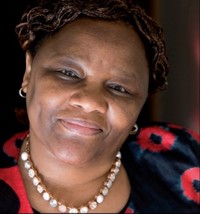 President Jacob Zuma congratulated distinguished South African scientist Prof. Tebello Nyokong for winning the African Union (AU) award for her cutting-edge research.
President Jacob Zuma congratulated distinguished South African scientist Prof. Tebello Nyokong for winning the African Union (AU) award for her cutting-edge research.
The Rhodes University professor has been actively involved in ground breaking research in applying nanotechnology as an alternative treatment to chemotherapy since 2007.
Nyokong is the director of the Nanotechnology Innovation Centre, a national science facility established by the Department of Science and Technology in 2007.
“I had an opportunity to stress the importance of science to the leaders of the continent. They may not listen to me, but I had to do it,” she said.
Water sustainability and nanotechnology
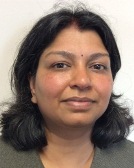 Prof. Shivani Bhardwaj (Mishra) is a Professor at the Nanotechnology and Water Sustainability (NanoWS) Research Unit, College of Science, Engineering and Technology at the University of South Africa. The Nanotechnology and Water Sustainability (NanoWS) research unit is a strategic research niche at the College of Science, Engineering and Technology (CSET) that addresses current and emerging issues relating to water quality and water scarcity.
Prof. Shivani Bhardwaj (Mishra) is a Professor at the Nanotechnology and Water Sustainability (NanoWS) Research Unit, College of Science, Engineering and Technology at the University of South Africa. The Nanotechnology and Water Sustainability (NanoWS) research unit is a strategic research niche at the College of Science, Engineering and Technology (CSET) that addresses current and emerging issues relating to water quality and water scarcity.
Prof. Bhardwaj explained more about her thoughts on her academic journey, nanotechnology and water sustainability.
Nano-composites could provide a solution to clean and safe water
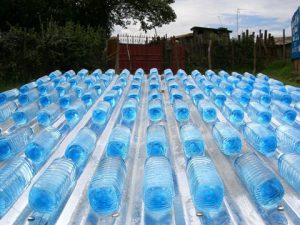 Reliable research over the last decade has shown an ever rising number of people falling sick and dying due to consumption of unsafe water. About 1.2 billion people in the world, with 450 million living in Africa, do not have access to clean, potable drinking water. In South Africa, an estimated 5.7 million people lack access to clean water and over 18 million people live in areas without basic sanitation facilities.
Reliable research over the last decade has shown an ever rising number of people falling sick and dying due to consumption of unsafe water. About 1.2 billion people in the world, with 450 million living in Africa, do not have access to clean, potable drinking water. In South Africa, an estimated 5.7 million people lack access to clean water and over 18 million people live in areas without basic sanitation facilities.
In addition, researchers argue that, due to the increasing population coupled by industrial expansion, centralised traditional and conventional water purification systems are overburdened and unable to achieve optimum provision and supply of clean water. Recent advances in nanoscience and nanotechnology engineering could be regarded as a cost-effective remedy and life changing gateway in providing access to clean water.
The future of nanotechnology and water research
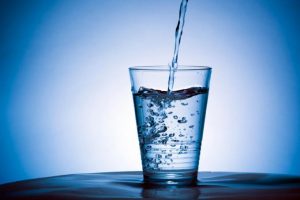 Technology has been critical in providing clean drinking water. Ancient civilisations believed heating water could purify it and, in centuries BC, Romans used aqueducts to convey water. Today’s water filtration and purification models are based on the orthodox tried and tested models developed in the 21stCentury. To put it simply, developing civilisations have been on a continuous journey to ensure water availability.
Technology has been critical in providing clean drinking water. Ancient civilisations believed heating water could purify it and, in centuries BC, Romans used aqueducts to convey water. Today’s water filtration and purification models are based on the orthodox tried and tested models developed in the 21stCentury. To put it simply, developing civilisations have been on a continuous journey to ensure water availability.
Most poor communities struggle to access clean water and, unfortunately, water availability and poverty have become interlinked. The pressures of climate change and population growth will also almost certainly lead to more widespread water scarcity.
Treating mining waste water
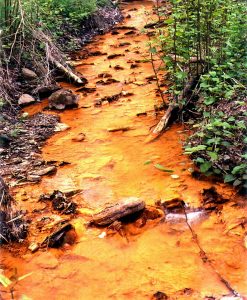 Acid mine drainage (AMD) in the Gauteng City-Region (GCR) has been largely described in the media as a ticking time bomb after it was officially reported to have begun surfacing from old mining works on the West Rand in 2002. AMD from abandoned mine shafts and dumps poses a threat to clean water, as the contaminated water seeps into both surface and underground water reserves.
Acid mine drainage (AMD) in the Gauteng City-Region (GCR) has been largely described in the media as a ticking time bomb after it was officially reported to have begun surfacing from old mining works on the West Rand in 2002. AMD from abandoned mine shafts and dumps poses a threat to clean water, as the contaminated water seeps into both surface and underground water reserves.
Although government has shown a commitment to dealing with AMD through initiating a R150 million fund to tackle the problem, most researchers believe that this will not be enough to solve the problem as there are more than 6000 abandoned mine shafts, that require a budget of R30 billion to solve acid mine drainage in the Witwatersrand region.
The environmental problem associated with centuries of mining in the country cannot be understated. Mountains of waste mine dumps and webs of abandoned mining shafts harbour iron pyrite known as “fool’s gold”, which reacts with rainwater and groundwater to create sulphuric acid.
Nanotexnology 2016, 13th International Conference on Nanosciences & Nanotechnologies / 9th International Symposium on Flexible Organic Electronics
The 13th International Conference on Nanosciences and Nanotechnologies is an internationally established world-class event that focuses on the latest scientific advances and promotes profound discussions between scientists, researchers from different disciplines and market leaders.
The 9th International Symposium on Flexible Organic Electronics is the biggest scientific and technology event in Flexible Organic Electronics (OEs) with a focus on scientific research in OE nanomaterials, Manufacturing Processes, Devices and Applications.
7th International Conference on Advanced Nanomaterials (ANM2016)
ANM2016 (www.anm2016.com) is a premier conference series on nanotechnology that will be held from July 25-27, 2016 at the University of Aveiro, Portugal, Europe, focusing on the following events.
Nanostructured Materials Conference (NANO 2016)
The year 2016 marks the 26th anniversary of the founding of the International Committee on Nanostructured Materials (ICNM) at a small nanomaterials conference in Atlantic City — the precursor to the biannual Nano Conference series, celebrating its 24th anniversary in 2016. Since 1992, this prestigious series of biennial conferences has always provided a forum for large numbers of international scientists and engineers from a wide range of scientific disciplines interested in relations between the properties of materials and their unique structures at the nanometer level. The XIII International Conference on Nanostructured Materials (NANO 2016) will continue the tradition of this unique scientific event spearheaded by the ICNM—held in Cancun, Mexico in 1992; in Stuttgart, Germany in 1994; in Kona, Hawaii, USA in 1996; in Stockholm, Sweden in 1998; in Sendai, Japan in 2000; in Orlando, USA in 2002; in Wiesbaden, Germany in 2004; in Bangalore, India in 2006; in Rio de Janeiro, Brazil in 2008; in Rome, Italy, in 2010; in Rhodes, Greece in 2012; and in Moscow, Russia, in 2014.
National Science Week 2016
National Science Week (NSW), an initiative of the Department of Science and Technology (DST,) is a countrywide celebration of science involving various stakeholders and/or role players conducting science-based activities during the week.
International Conference on Nanomedicine and Nanobiotechnology (ICONAN 2016)
This conference is an annual gathering of experts from all around the world, in order for them to exchange information about their latest research results and share their ideas covering…
South African Nanoscience and Nanotechnology Summer School
The vision for the South African nanoscience and nanotechnology school is to create a pool of nanoscientists sufficiently trained to conduct nanoscience research. The theme for 2016 is ‘Nanotechnology health, safety and environmental risk research: Nanotechnology HSE is a necessity and not an impediment in the advancement of nanotechnology’.
54th Annual MSSA Conference
Dear Friends. On behalf of the local organising committee, I would like to extend a warm welcome and invite you to participate in MSSA 2016. The 54th annual MSSA conference will be hosted by the Nelson Mandela Metropolitan University, and will be held on 5-8 December 2016 at the Boardwalk Convention Centre in Port Elizabeth. It has been exactly ten years since NMMU has had the privilege of hosting this esteemed event. Many exciting things have happened since you last visited us; not least of which is the launch of the new Centre for High Resolution Transmission Electron Microscopy at NMMU in 2011.
DST-NRF Nanotechnology Symposium
It is with great pleasure to extend an invitation to all NFP grant holders, on behalf of the Department of Science and Technology (DST) and National Research Foundation (NRF), to participate in the DST-NRF Nanotechnology Symposium in Gauteng on 27-28 June 2016.
South African scientist honoured
Water sustainability and nanotechnology
Nano-composites could provide a solution to clean and safe water
The future of nanotechnology and water research
7th International Conference on Advanced Nanomaterials (ANM2016)
Nanostructured Materials Conference (NANO 2016)
International Conference on Nanomedicine and Nanobiotechnology (ICONAN 2016)
